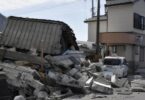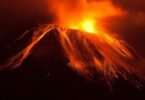Water Quiz questions and answers:
A particular type of well in which water rises automatically under the pressure of a column of water to the ground surface through a hole is known as
(a) Artisan well
(b) Spring
(c) Hot spring
(d) Geyser
If the pressure on the surface of the water increases, the boiling point of the water
(a) Increases
(b) Decreases
(c) Remains the same
(d) First increases, then decreases
Water is transparent, but in the deep sea, it appears blue because of
(a) Deflection of light from the sky
(b) Reflection of light from the sky
(c) Refraction of light from the sky
(d) Dispersion of light from the sky
Water has
(a) High surface tension and low thermal conductivity
(b) Low surface tension and low thermal conductivity
(c) High surface tension and high thermal conductivity
(d) Low surface tension and low thermal conductivity
To obtain pure water for medical and laboratory use, we make use of the following process :
(a) Filtration
(b) Sedimentation
(c) Distillation
(d) Crystallization
Related: disaster management mcq
How much water does our body contain by mass?
(a) 65%
(b) 70%
(c) 60%
Which of the following properties of water shows unique variation?
(a) Volume
(b) Pressure
(c) Electricity
(d) Density
What is the groundwater stored at places between the layers of hard rock below the water table called?
(a) Water cycle
(b) Water table
(c) Groundwater
(d) Aquifer
When cold water is kept in a glass for some time, droplets are formed on its surface because air contains
(a) Water
(b) Water vapor
(c) Liquid water
(d) Distilled water
Related: Global Warming questions and answers
Crystal ice is called
(a) Dew
(b) Frost
(c) Fog
(d) Snow
The water that gets collected in lakes, ponds, and puddles is :
(a) Runaway water
(b) Surface water
(c) Soil water
(d) Groundwater
Which can purify sea water?
(a) Distillation
(b) Evaporation
(c) Filtration
(d) Fractional distillation
The temperature of the water at the bottom of a large waterfall is higher than that of the water at the top. because
(a) the falling water absorbs heat from the Sun.
(b) the water at the bottom has more incredible potential energy.
(c) the kinetic energy of the falling water is converted into heat.
(d) rocks on the bed of the river give out heat.
All forms of water that come down on Earth, including rain, snow, hail, etc, are known as __
(a) Calcification
(b) Fixation
(c) Precipitation
Related: Questions about Biodiversity
Enrichment of the water body by nutrients like phosphorus and nitrogen is called.
(a) Succession
(b) Eutrophication
(c) Stratification
Choose the property below to state that “water is a liquid.”
(a) Water has a definite mass and volume
(b) Water has several free surfaces
(c) Water has more density
(d) Water has no definite shape
One of the following is not the result of underground water action
(a) Stalactites
(b) Stalagmites
(c) Sinkholes
(d) Fiords
The foul smell in the water of tanks, ponds, etc., is due to
(a) Anaerobiosis
(b) Aerobiosis
(c) Biological magnification
(d) Psammophytes
Related: Vampire questions and answers
The stagnant water at the bottom of a lake is called
(a) Epilimnion
(b) Mesolimnion
(c) Metalimnion
(d) Hypolimnion






